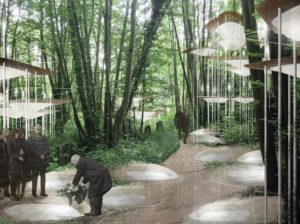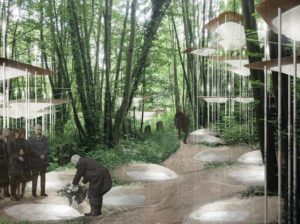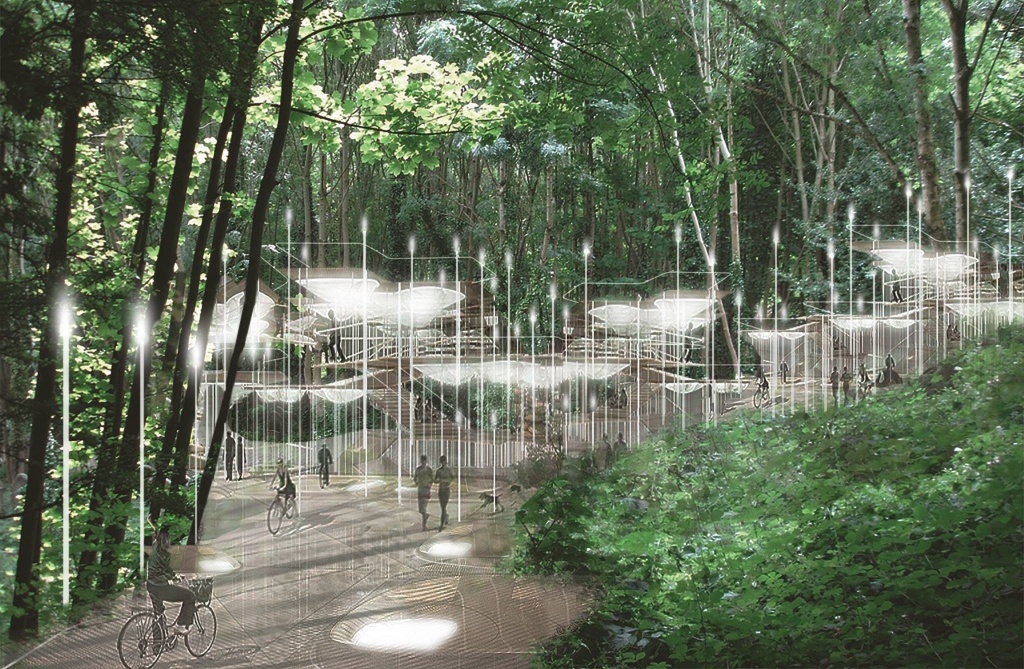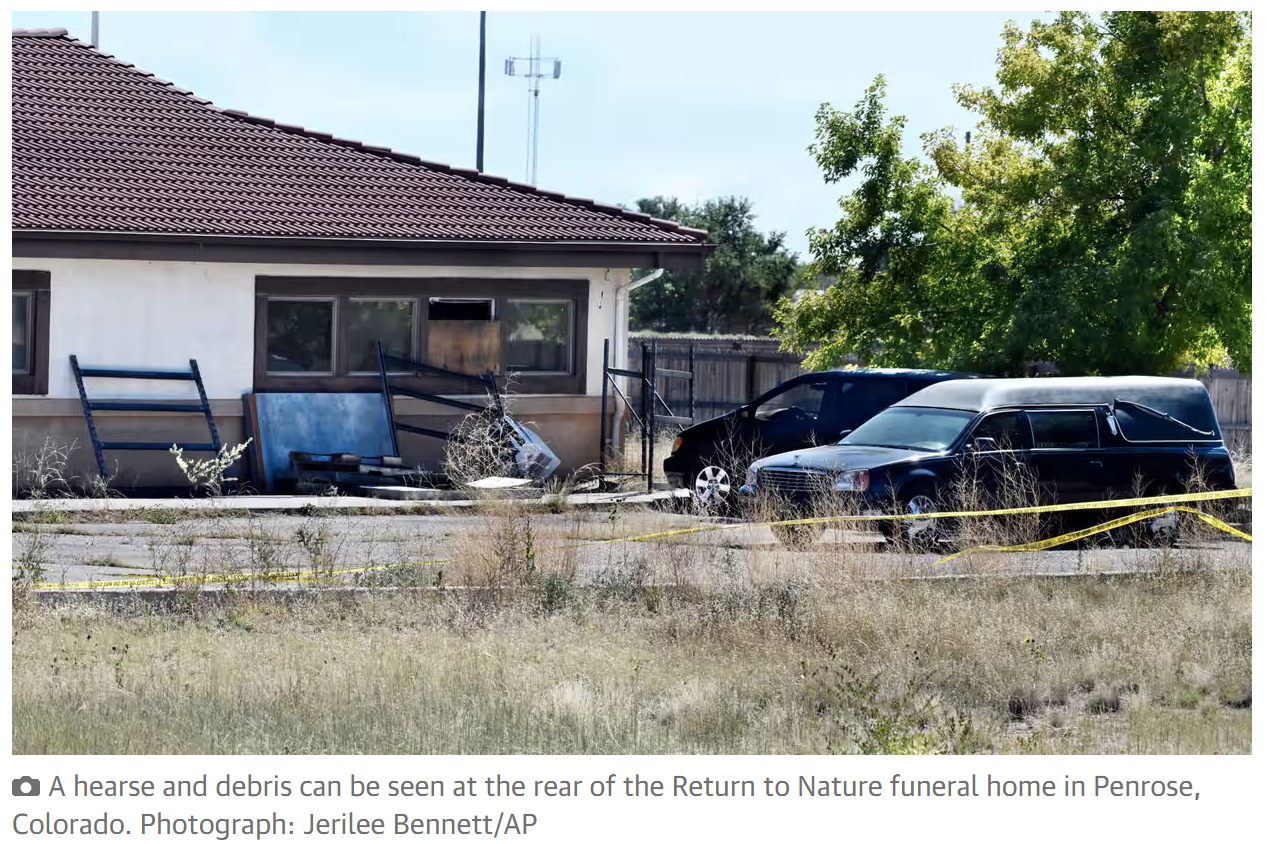Decomposing Bodies Power Ethereal Cemetery Lanterns
[Original Article By: PSFK.com / Jeb Brack]
What happens to you after death? We expect that our loved ones will grieve, someone will say consoling words to our family and friends, and perhaps there will be a party with fond toasts to our memory. But what becomes of our remains? In most cases, bodies are either embalmed or cremated, buried or scattered in some meaningful location. But the Centre for Death and Society at England’s University of Bath held a competition in hopes of reimagining the future cemetery. They selected as their winner ‘Sylvan Constellation,’ a proposal that combines grieving with the latest in green technology to create a sustainable, peaceful space.
Sylvan Constellation envisions the cemetery as a series of woodland paths through clusters of ‘memorial vessels,’ some at the level of the path and some suspended on columns overhead. The vessels contain remains and microbial fuel cells that hasten decomposition. As the body breaks down, its energy is converted into electricity that causes the vessel to glow, lighting the nearby paths, creating beautiful surroundings while avoiding the environmental impacts of embalming or cremation. Centre director Dr. John Troyer said in a press release, “The proposal captured the Future Cemetery design competition’s larger themes by presenting a mix of different sustainable technologies.”


The proposal is the work of Columbia University’s Graduate School of Architecture, Planning and Preservation. GSAPP will receive a prize of five thousand pounds and a month’s residency in Bath to research the nearby Arnos Vale Cemetery, where Sylvan Constellation will be constructed. GSAPP will collaborate with Arnos Vale and the Centre to bring the project to fruition. “By working together on this project, collaborators will establish networks for longer-term projects involving innovative, sustainable design around end-of-life planning,” said Troyer.




